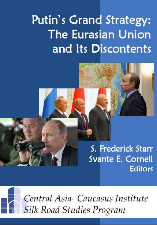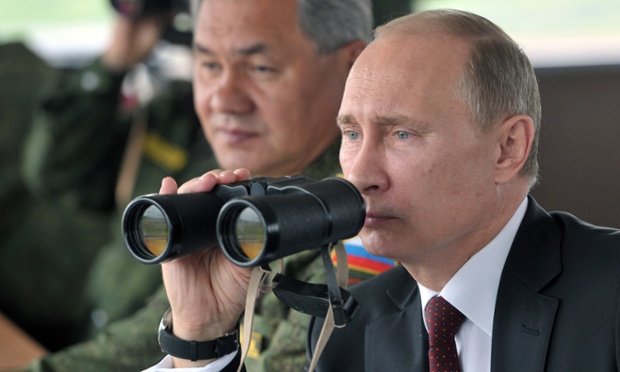 The volume stresses the high degree of coordination that has been achieved among sectors of the Russian state that are accustomed to function as sovereign bureaucracies. Subsequent chapters analyze the response of eleven post-Soviet states to Putin's initiative, as well as the attitudes towards it of China, Europe, and the United States. The book suggests that the project, if successful, would jeopardize the gains of two decades of independence in countries ranging from Moldova to Tajikistan, but also traces the processes by which those potentially affected have already worked to limit, dilute,and even undermine it even before it comes into being.
The volume stresses the high degree of coordination that has been achieved among sectors of the Russian state that are accustomed to function as sovereign bureaucracies. Subsequent chapters analyze the response of eleven post-Soviet states to Putin's initiative, as well as the attitudes towards it of China, Europe, and the United States. The book suggests that the project, if successful, would jeopardize the gains of two decades of independence in countries ranging from Moldova to Tajikistan, but also traces the processes by which those potentially affected have already worked to limit, dilute,and even undermine it even before it comes into being.
Monograph: S. Frederick Starr and Svante Cornell editors, Putin's Grand Strategy: The Eurasian Union and Its Discontents, September 2014.
Contents
1- Introduction
S. Frederick Starr and Svante E. Cornell
2- Vladimir Putin and the Intellectual Origins of the Project
Stephen Blank
3- The Customs Union and Eurasian Union: A Primer
Richard Weitz
4- The CSTO’s Role in Russian Reintegration Efforts
Pavel Baev
5- The Economics of the Customs Union
Richard Pomfret
6- Tactics and Instruments in the Putinist Project
S. Frederick Starr and Svante E. Cornell
7- Kazakhstan and Belarus: Buyer's Remorse?
John Daly
8- Armenia: Joining under the Gun
Armen Grigorian
9- Kyrgyzstan and Tajikistan: Next in Line
Johan Engvall
10- Ukraine: Door Closed
James Sherr
11- Georgia and Moldova: Staying the Course
Mamuka Tsereteli
12- Azerbaijan: Going It Alone
Svante Cornell
13- Uzbekistan and Turkmenistan: Staying Away
S. Frederick Starr
14- Challenge from the East: China
Slavomir Horak
15- The European Union: Eastern Partnership vs. Eurasian Union
Svante Cornell
16- Out of Focus: The U.S. Response to Putinism
S. Frederick Starr

 Bringing together a group of leading American and European experts, this is the first book-length study of Russian President Vladimir Putin's effort to create a Eurasian Union. The book indicates the ideological origins and character of this project; focusing not only on Putin's strategic objectives but the tactics he employs to achieve them.
Bringing together a group of leading American and European experts, this is the first book-length study of Russian President Vladimir Putin's effort to create a Eurasian Union. The book indicates the ideological origins and character of this project; focusing not only on Putin's strategic objectives but the tactics he employs to achieve them.

 What should be the United States’ strategy towards Central Asia, the Caucasus, and the region of Greater Central Asia (GCA) as a whole? Should it even have one? Unlike most other world regions, these lands did not figure in US policy until the collapse of the USSR in 1991. Though the new Baltic states entered Washington’s field of vision in that year, in those cases the Department of State could recall and build upon America’s relations with independent Estonia, Latvia, and Lithuania during the inter-war decades. For the US Government after 1991, GCA was defined less as sovereign states than as a group of “former Soviet republics” that continued to be perceived mainly through a Russian lens, if at all.
What should be the United States’ strategy towards Central Asia, the Caucasus, and the region of Greater Central Asia (GCA) as a whole? Should it even have one? Unlike most other world regions, these lands did not figure in US policy until the collapse of the USSR in 1991. Though the new Baltic states entered Washington’s field of vision in that year, in those cases the Department of State could recall and build upon America’s relations with independent Estonia, Latvia, and Lithuania during the inter-war decades. For the US Government after 1991, GCA was defined less as sovereign states than as a group of “former Soviet republics” that continued to be perceived mainly through a Russian lens, if at all.